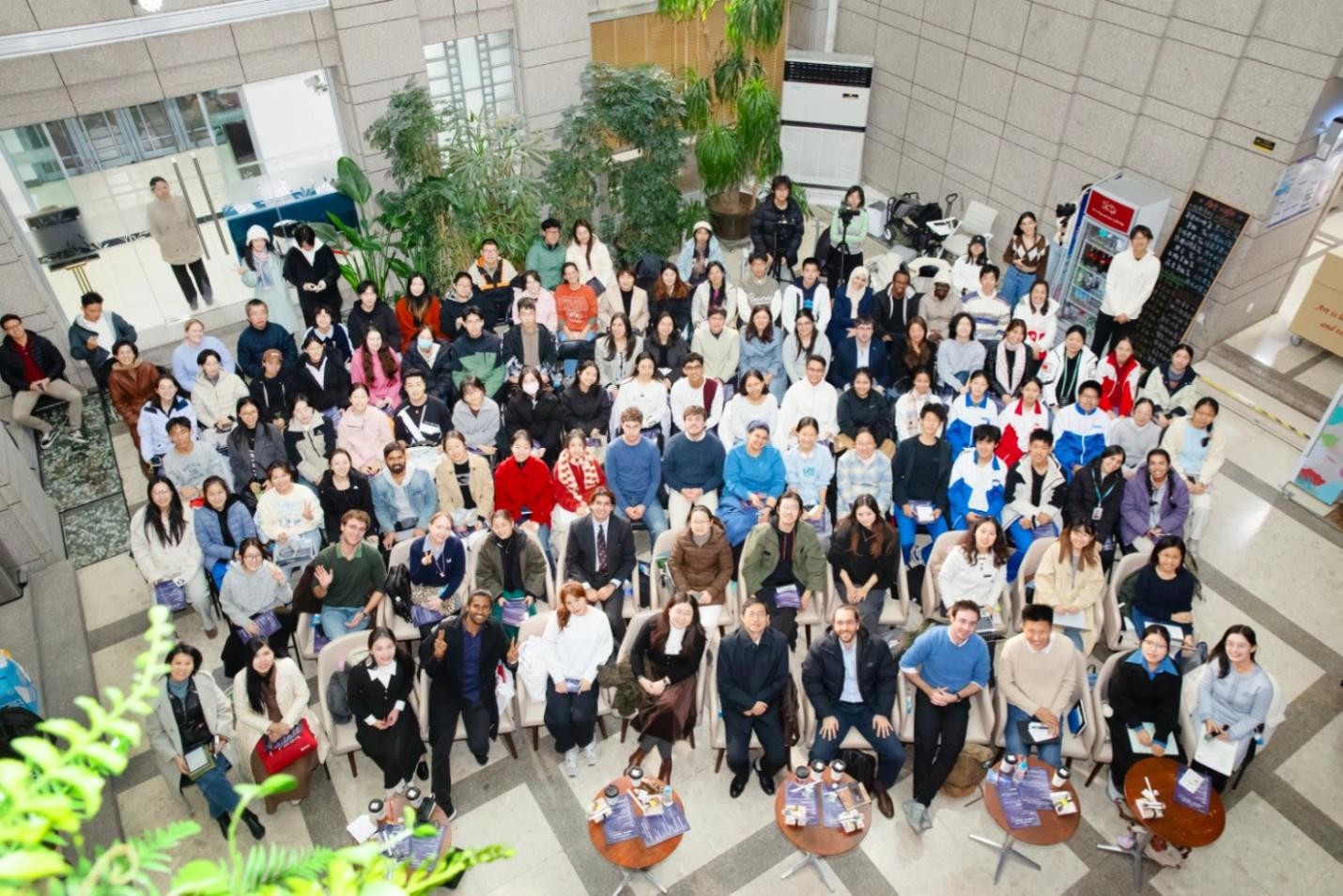
Group photo of professors, students, and participants at the fifth PKU Exchange Cafe.
Peking University, October 27, 2025: On October 23, the fifth session of the PKU Exchange Cafe was held under the theme "In AI Era, What Do We Need in Education?" Professor Jia Jiyou and Professor Zheng Lei from the Graduate School of Education, alongside Professor Sebastian Sunday Grève from the Department of Philosophy, joined five international and local students in a stimulating dialogue on how artificial intelligence is reshaping the foundations of global education.
The session opened with a presentation titled "What is Education?" by Professor Jia Jiyou, author of
Artificial Intelligence and Education. He deconstructed the components of an educational system and compared natural intelligence to artificial intelligence. Artificial intelligence, he explained, is "the simulation of human education on machines." Professor Jia concluded that the latest AI technologies have gradually reached levels comparable to top human experts in many areas.
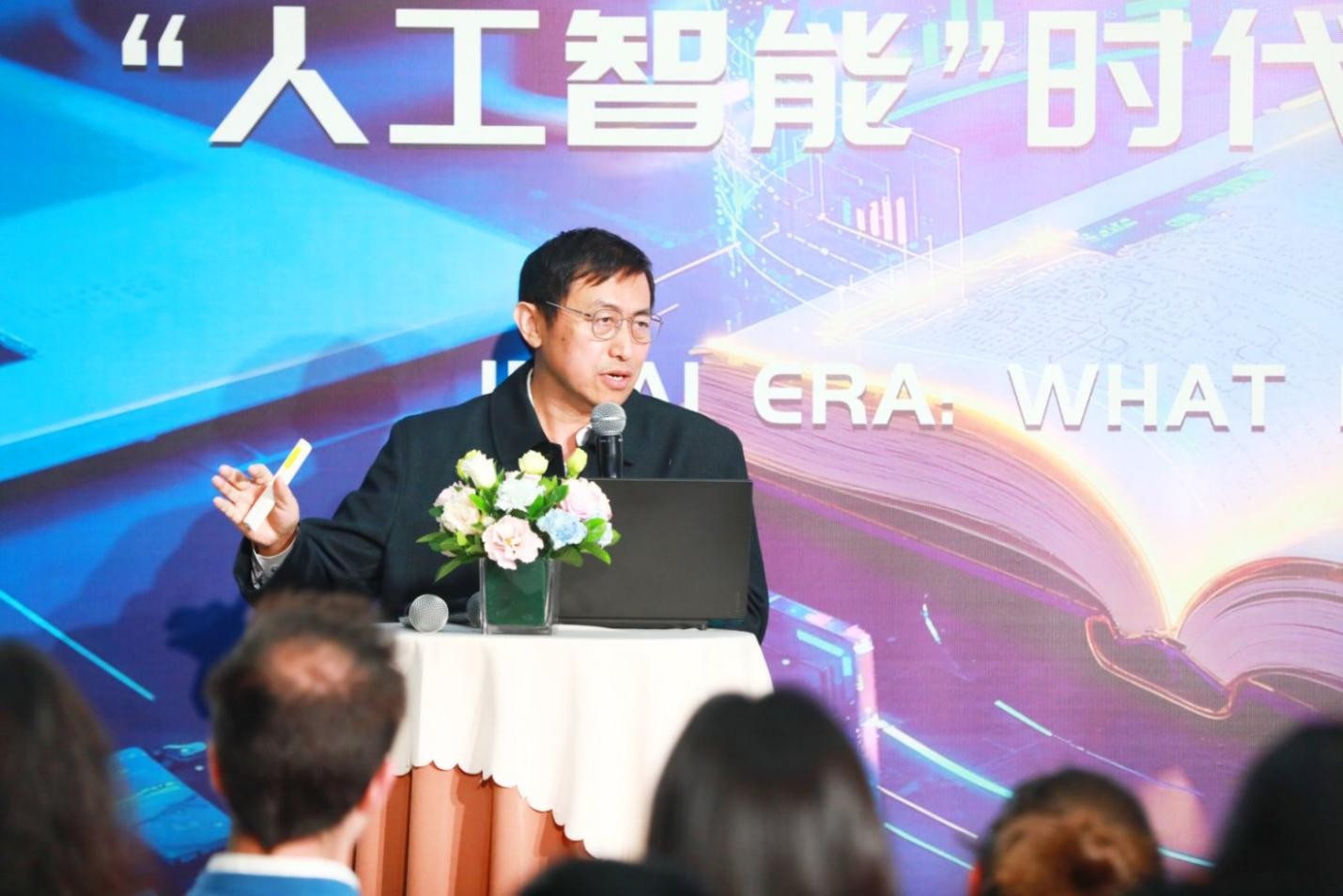
Professor Jia Jiyou delivers his opening talk on “What is Education?”
Professor Sebastian followed with a philosophical reflection titled "Cultivate Humanity Through Education." He invited the audience to consider what it truly means to be human, discussing concepts such as mind-uploading and examples like smart prosthetics and neural integration projects. While AI may enhance efficiency, he concluded, education must continue to cultivate humanity and "we must remain the ones steering our own lives."
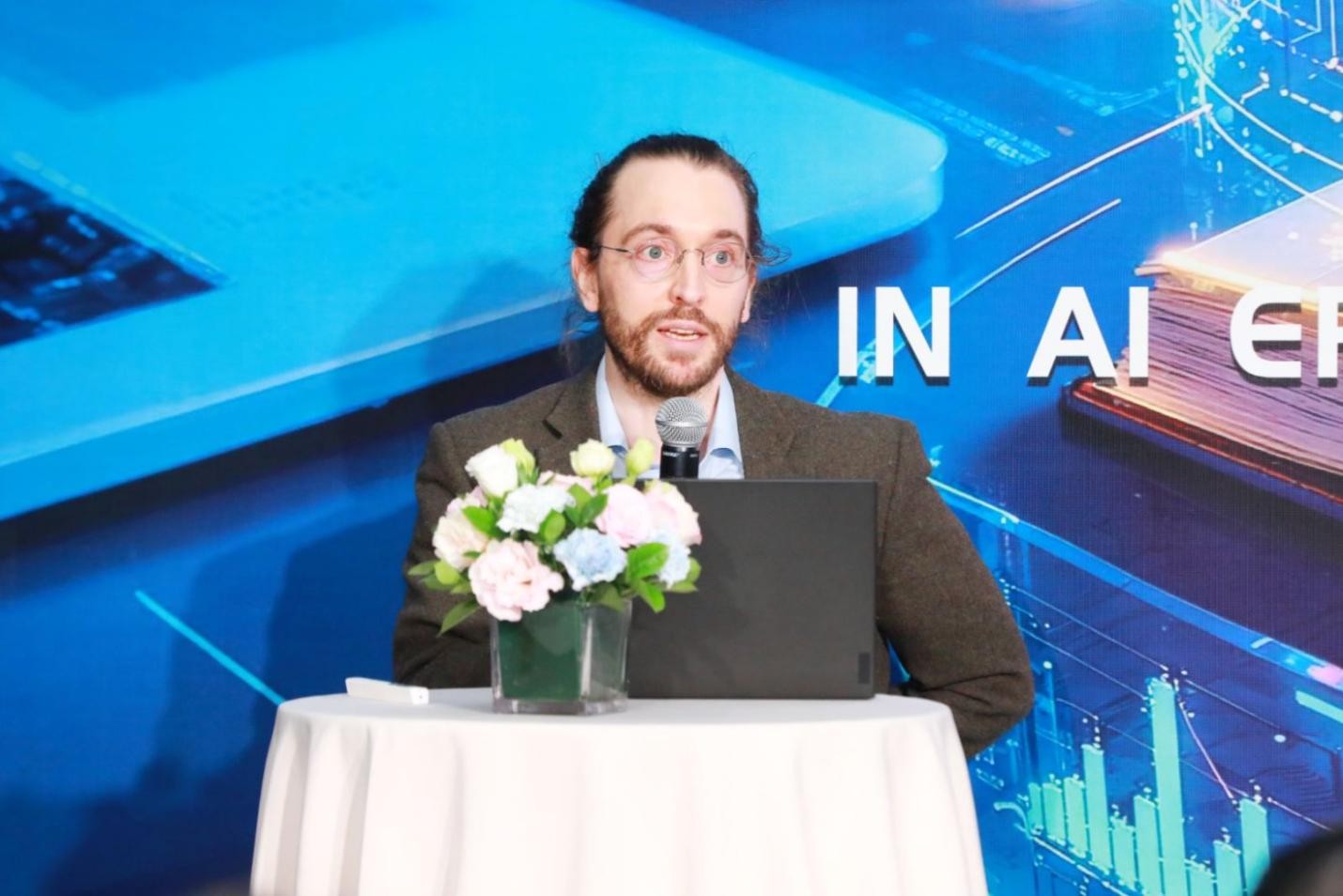
Professor Sebastian Grève reflects on humanity and technology in education.
Building on these insights, three groups of students presented case studies illustrating the impact of AI on learning, teaching, and educational purpose. Huang Yan and Sri Nirmal discussed how AI transforms learning models by offering personalized feedback, on-demand tutoring, and dynamic assessment while cautioning against over-reliance and misinformation. Huang Yan and Lee Zhi Ying Arissa examined how AI tools enhance classroom practices, referencing Singapore's EdTech Masterplan 2030, which integrates adaptive systems and digital learning spaces. Finally, Liu Zhiang and Jacob Mortimer reflected on the deeper meaning of education in the AI era, warning against equating efficiency with understanding and emphasizing the need to preserve critical thinking and moral awareness. The student presentations broadened the discussion to global educational contexts.
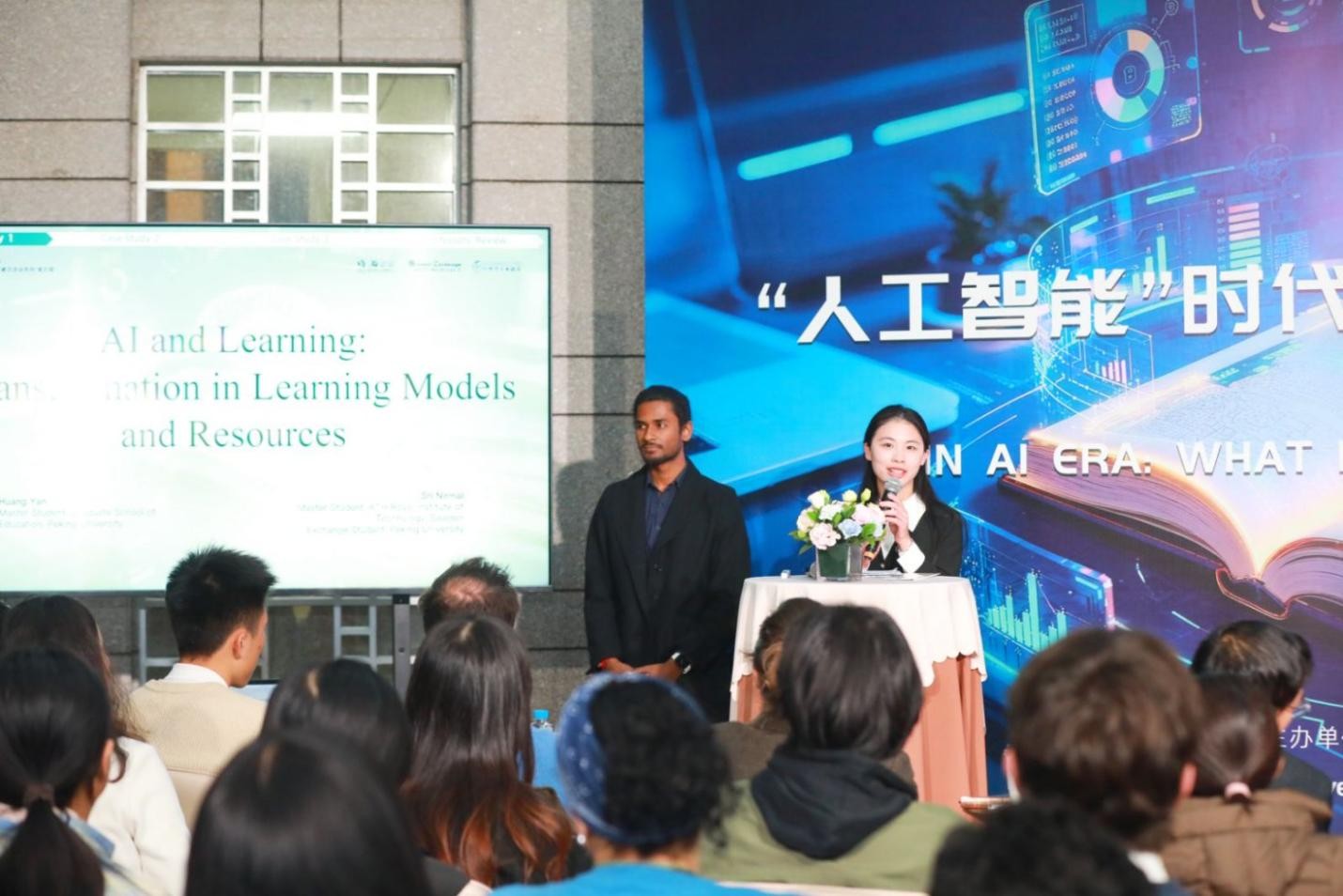
Case illustration
Following the case studies, Professor Zheng Lei, Vice-Director of the Center for Qualitative Research in Education, highlighted the emotional dimension of teaching. She noted that as educators increasingly rely on AI to assist in planning and writing, they risk outsourcing not only intellectual but also emotional labor, the passion and devotion that make instruction meaningful.
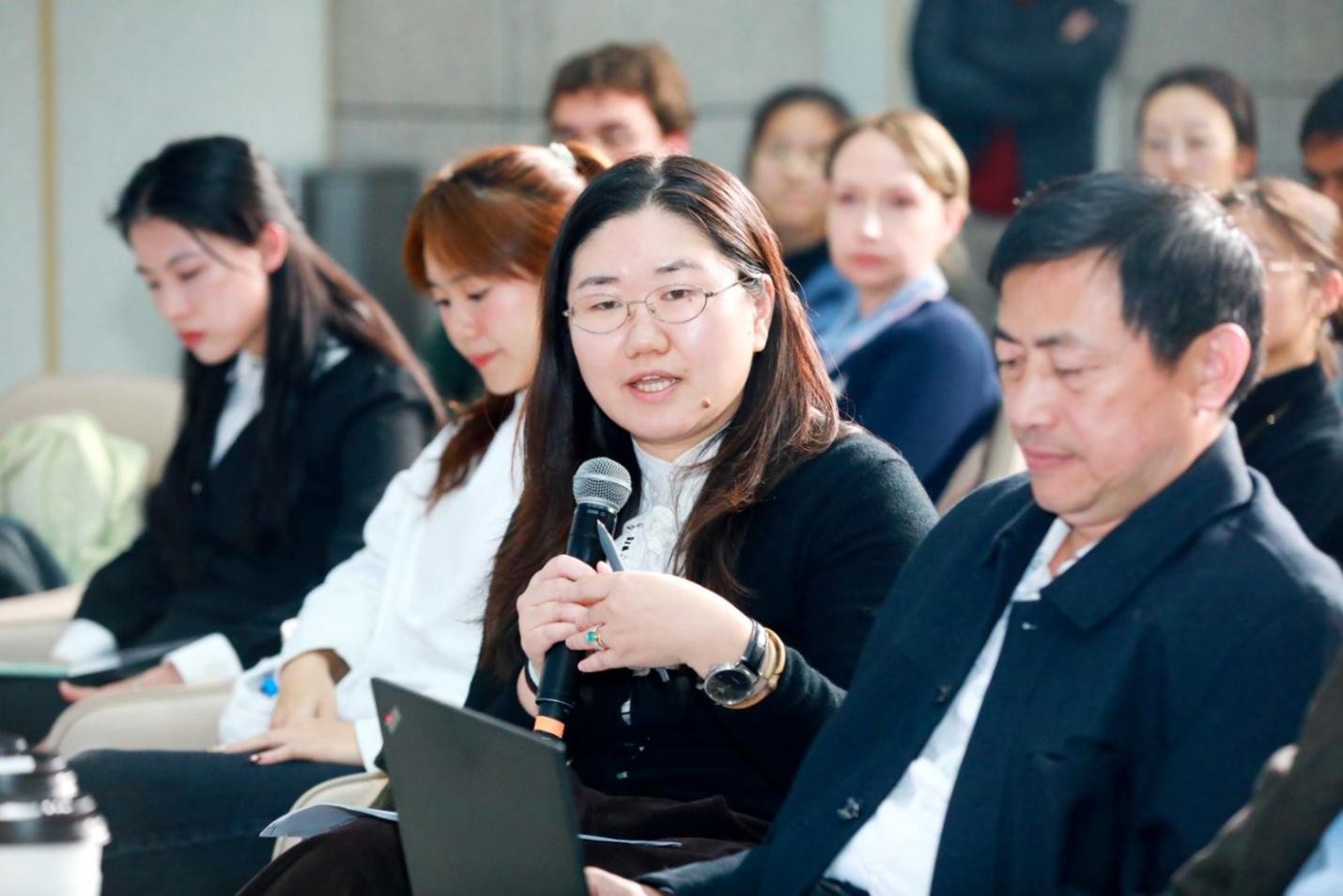
Professor Zheng Lei highlights the emotional core of teaching.
The session concluded with a lively Q&A and roundtable discussion, where participants agreed that education must remain a human-centered endeavor by guiding technology, rather than being guided by it.
Through leveraging multilateral platforms to promote joint development, Peking University has launched the Digital Intelligence for Education Development International University Alliance (DI-IDEA), which currently has nearly 50 participating universities from five continents, focusing on the integration of artificial intelligence and education.
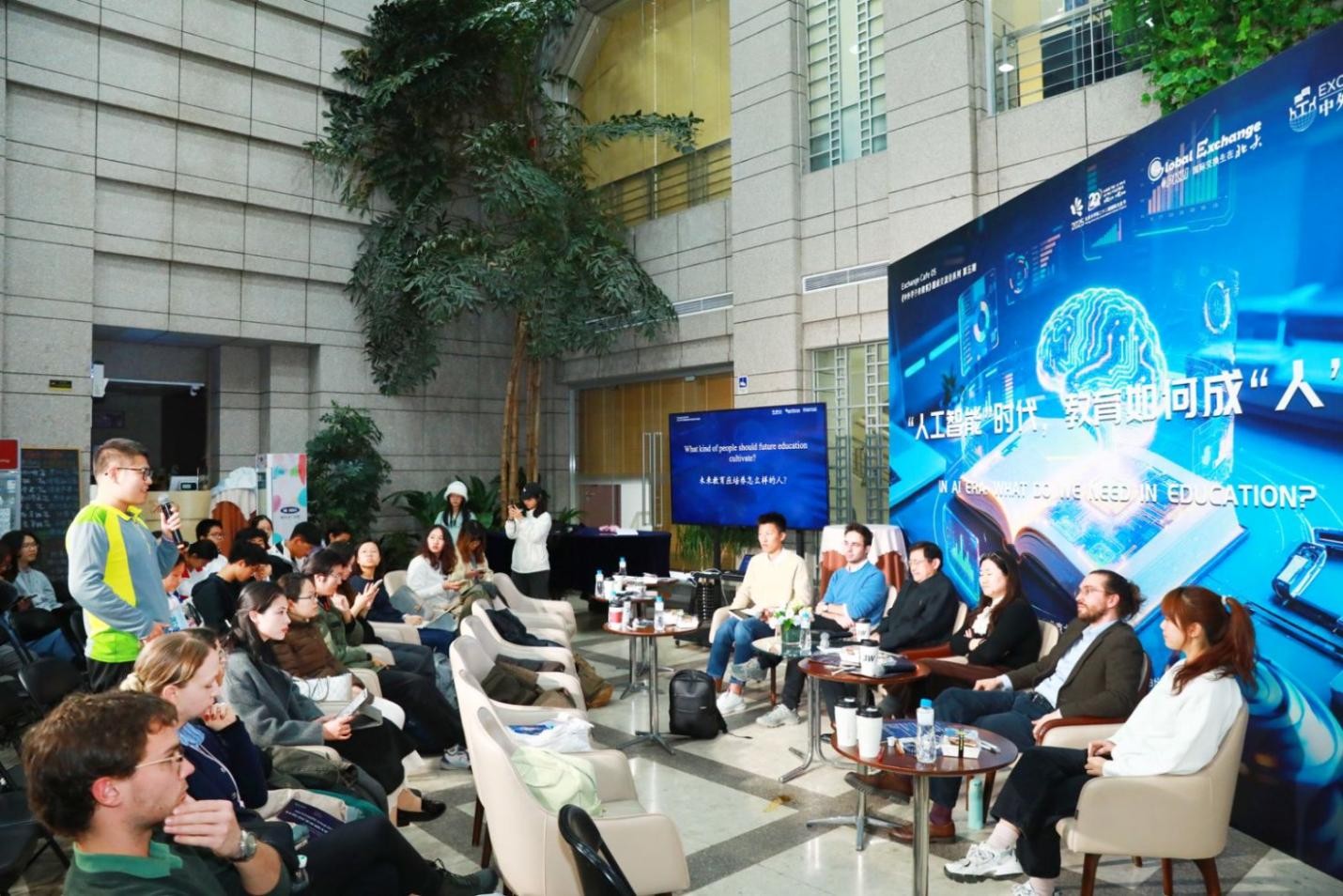
Dialogue section
Written by: Ashley Leung, Akaash Babar
Edited by: Chen Shizhuo
Photo by: Office of International Relations, Peking University





